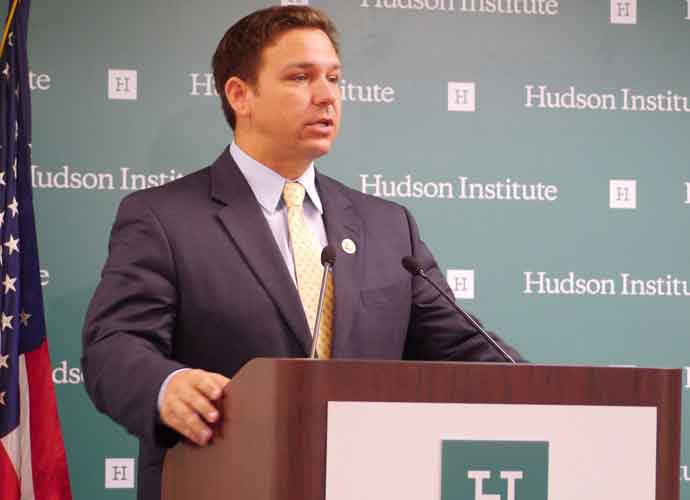Florida Gov. Ron DeSantis Ignores Advice Of Health Experts But Listens To Wife Casey DeSantis On COVID-19 Policy, Report Says
Florida Gov. Ron DeSantis (R) held only one meeting this month with his top public health official, Scott Rivkees, and continued to brush off medical experts as coronavirus cases surged in his state, an investigative report from The Washington Post found.
“I never received information about what happened with my ideas or results,” Thomas Hladish, a University of Florida research scientist whose regular communications with the state health department ended June 29, told the Post. “But I did hear the governor say the models were wrong about everything.”
According to anonymous Republican political operatives, DeSantis is heavily influenced by his wife Casey, as well as his chief of staff, Shane Strum, a former hospital executive.
“It’s a universe of three – Shane and Casey,” said one Republican consultant said.
Subscribe to our free weekly newsletter!
A week of political news in your in-box.
We find the news you need to know, so you don't have to.
Florida has had over 433,000 cases of coronavirus and nearly 6,000 deaths. Some hospitals have been overwhelmed and the growing case number has only cause DeSantis’ approval ratings to tank further. A Quinnipiac poll, conducted July 16-20, found that 52% of registered voters disapprove of DeSantis, while only 41% approve.
Alberto Moscoso, a spokesperson for the health department says both the governor and Rivkees, the surgeon general “are continuing to remind all Floridians to protect the vulnerable by avoiding the Three Cs: Closed Spaces, Crowded Places and Close-Contact Settings and by wearing a mask in public.”
He did not elaborate on why Rivkees only appears once on DeSantis’ schedule.
Defenders of DeSantis argue that he acted quickly to protect nursing homes and has secured loads in terms of resources and medications.
Rep. Matt Gaetz (R-Florida) said that in particular, DeSantis’ good relations with Washington have helped the state emerge on top “in terms of supplies and resources,” because as President Donald Trump puts it, “we’re really good at asking for stuff,” he said.
Florida’s early successes allowed the state to reopen sooner than others. However, the lack of a statewide mask mandate and social distancing enforcement – with crowds of young people flocking to beaches – made it difficult to contain the virus.
“One of the areas where we failed in Florida was in convincing people that as things began to open up, that we still had a serious situation, that the virus was still present in the community and that there remained a critical need to maintain the basic practices recommended by the [Centers for Disease Control and Prevention],” Glenn Morris, director of the University of Florida’s Emerging Pathogens Institute, told the Post.
Health experts are urging DeSantis to formulate a plan of attack to combat the virus and put in place preventive measures to slow the spread.
Get the most-revealing celebrity conversations with the uInterview podcast!








Leave a comment